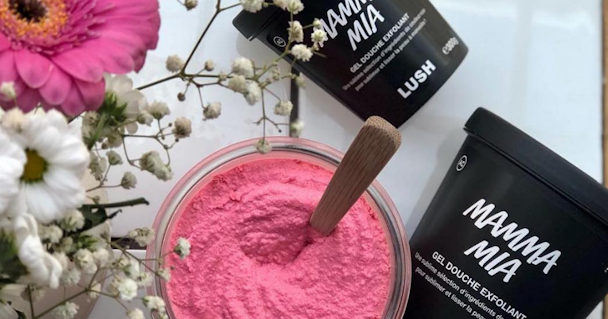Lush is the new anti-social gangster, and for good reason
People forget when social was actually taken seriously by brands – it wasn’t 2007 but more like 2011, coincidentally when I was given the ominous task of creating one of some new-fangled social teams at Nissan.

Scale was the social emperor’s new clothes / Lush - Instagram
At this time, Facebook (pre-IPO) was starting to massively grow its sales teams and empower its managers to go out and spread the word. The word wasn’t 'hey, we sell ads'. It was 'hey, you need fans, lots and lots and lots of fans'.
So, we did. Nissan's marketing team set up pages and started posting content with amazing rates of organic views – 25% and upwards for some pages. We fell in love with likes, comments and shares.
Then all the other social networks joined in, Twitter, YouTube et al, for brands a three-channel strategy became five, then seven.
From this mindset grew a burgeoning market in skills (social media 'experts') and then, eventually, ads. I joined these ranks, of sorts.
Social was simple enough for a consumer to use it, but for brands, it was sufficiently complex enough that it required people with new skills to navigate around formats, pages, copy, content and ads. We needed to talk to customers, manage complaints, create videos.
Complaining customers also cottoned on – 'if I complain here, I get an answer' was the thinking. Social became a place for people to complain very quickly, to whinge, to get responses. The sales pitch of a network of engaged customers sharing and living together in harmony and utopia on your Facebook page was strangled slowly and many social pages became the place for customers to air grievances and negative views.
In 2015 social truly became the content worm that started to feed itself.
In the arms race to 'be there,' many brands ended up with a mass of pages and content that were less than meaningless. Mediocre advertisers posting mediocre content catering to people that would never see it, nor care.
One brand, five platforms, 25 countries, posting three times a week? That will be 20,000 pieces of content a year please – not including ads.
I coined the term 'social confetti' in an interview at the time – the sheer amount of 'stuff' to create was exhausting, as well as battling daily with customer complaints and issues.
Those of us that stopped buying the hype started to wonder if there was another way.
Then in 2018 Wetherspoons closed its account – the published reasons were mostly twaddle and its strategy of having multiple accounts ran per pub was ludicrous, but in the year since it closed has social catastrophe rained down on the brand? Not even vaguely. Have sales dropped as a result? Nope. Any reputational damage? For its target customers, I doubt it.
Cut to 2019 and Lush has just announced it will be closing all its UK social media accounts.
Yes – Lush, the darling of the high street that you can smell from seven doors away with chirpy staff and sustainable products. A company that by all rights is the perfect case study of a brand that should be on social.
Cue an army of social media gurus crying into their Gary Vaynerchuck handbooks.
'What? Why? How? This is terrible, ludicrous, the worst decision ever. What are they thinking!?'.
For several global clients, my agency has looked at similar strategies. For one we advocated a 'tribes and long tail' concept to create content that hit the right spots but was platform agnostic. For another, we presented a plan to remove the words 'social' from marketing teams and instead focus on 'community and influence' (note: influence, not influencer).
In all we have started to think beyond the platform and back to the purpose and the people. Asking 'who?', 'why?' and 'where?', not just 'what?' and 'when?'.
This is why a brand the size of Lush gets my thumbs up; its big enough for people to take notice, small enough to have the chops to do it.
Will it lose sales? Not in the slightest. Nor reputation. It should, though, save a nice wedge of cash it can use to implement more meaningful strategies. It should also be able to start doing what we've been talking about in the industry for a long time –do less, better and where the customers are.
Maybe it's not about scale. Scale is a myth marketers bought back in 2010 and we're too scared to admit we were wrong. Scale was the social emperor’s new clothes.
So, all hail Lush – the new anti-social gangster on the high street. May its less be more.
David Parkinson is owner and managing director at brand consultancy Brave & Heart, he tweets @DaveParkinson

